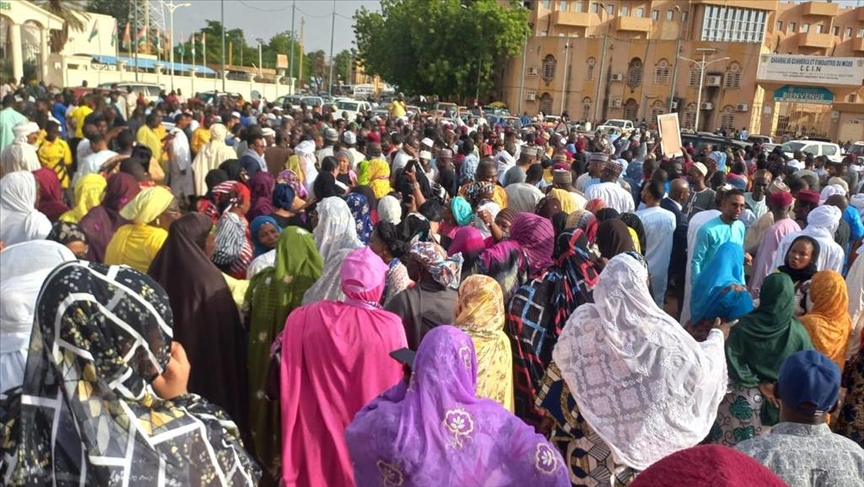
Pro-democracy advocates took to the streets of Niger’s capital on Wednesday following the announcement of an attempted coup.
“Spontaneous demonstrations by democracy advocates broke out all over the city of Niamey, inside the country and in front of Niger’s embassies abroad after the announcement this morning that President (Mohamed) Bazoum is being held in his palace by his guard,” said the presidency of the West African country on Twitter.
Earlier, it said the president and his family were doing well despite the coup attempt.
The presidency also said that the army and National Guard were ready to attack the elements of the presidential guard “involved in this mood swing if they do not return to better feelings.”
A number of local sources reported a state of calm prior to the afternoon demonstrations.
People were still going about their business, they said.
“All public services are operating normally, even though early this morning, at certain structures, civil servants were given the choice of whether to go home or stay. This is causing a slowdown in some places,” Issa Kane, a Niamey resident, told Anadolu.
Another local resident, on condition of anonymity, also reported calm in the city center.
“Even though since midday, there have been deployments of security forces at certain crossroads, traffic remains fluid, even towards the Presidential Palace. However, no entry is allowed to the headquarters of the national radio and television,” he added.
“As time goes by, we realize that the situation is more serious than a simple mutiny and that it is nothing less than a well-conceived attempt to destabilize the institutions,” said the youth organization of the ruling Niger Party for Democracy and Socialism (PNDS-Tarayya).
In its statement, the organization called on young people “to stand up as one to defend the republic and the democratic institutions” while condemning the military coup.
The African and international communities also reacted to the events in Niger. The African Union, Economic Community of West African States (ECOWAS), European Union, UN and France condemned the actions of the Nigerien military and called for the unconditional release of President Bazoum, 63, who was democratically elected in April 2021.
Niger, a landlocked West African nation, has had a tumultuous history, facing various coups and coup attempts since gaining independence from France in 1960.
The latest act by the elite Presidential Guard has heightened concerns among citizens who have flooded social media, fearing potential coup attempts.
In 1964, the country faced its first coup attempt, followed by a successful military coup in 1974 led by Lt. Col. Seyni Kountche. Kountche’s military regime remained in power until he died in 1987.
In 1996, Col. Ibrahim Bare Mainassara orchestrated another coup, resulting in the death of democratically elected President Mahamane Ousmane.
A return to civilian rule occurred in 1999, leading to the election of President Mamadou Tandja.
However, in 2010, Tandja’s attempted extension of his presidential term resulted in military intervention and his removal from power.
In 2011, Niger successfully transferred power through democratic elections, electing President Mahamadou Issoufou.
Despite political tensions in 2020, Niger managed to avoid another coup.
